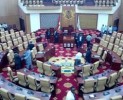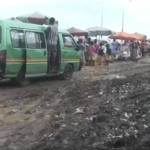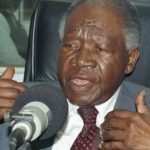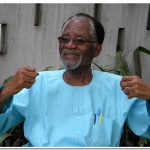La Cote d’Ivoire: A layman’s analysis on the call for Ghana’s Intervention
Posted by By Akogun Akomolafe at 8 January, at 20 : 00 PM Print
Warning: count(): Parameter must be an array or an object that implements Countable in /home/alaye/public_html/wp-content/themes/Video/single_blog.php on line 46
Warning: count(): Parameter must be an array or an object that implements Countable in /home/alaye/public_html/wp-content/themes/Video/single_blog.php on line 56
My Books on Amazon
Africa: it shall be well: https://www.amazon.com/Africa-shall-Mr-Femi-Akomolafe/dp/9988197837Africa
Destroyed by the gods: https://www.amazon.com/Africa-Destroyed-gods-Femi-Akomolafe-ebook/dp/B01HPSMK8O18
African Fables & Moonlight Stories: https://www.amazon.com/dp/B07638G8TL/ref=cm_sw_r_wa_awdb_t1_g7nbDb8DQE10S
Try and get your copy. And, please, help me share the links.
Kind regards,
Femi Akomolafe
“Enough of this genuflection to France! If Sarkozy has decided to go to war against Cote d’Ivoire, then let him do it this time, openly, with his French army. Africans should not be drafted for France’s colonialist wars in Africa. Africans, this time, should unambiguously refuse to be treated as mere Senegalese sharpshooters.” – M. Frindethie
“Ouattara, who had attended an American university with a scholarship reserved for students of Upper Volta (today’s Burkina Faso), who had served at the BCEAO (Central Bank of West African States) as an Upper Volta representative, and who had entered the IMF as an Upper Volta citizen, was deemed not eligible by Bédié.” M. Frindethie
Most of the pundits that castigated President Atta Mill’s lack of enthusiasm for war against La Cote d’Ivoire did not tell us what informed their condemnation.
And that precisely is the problem. When those that make it their business to comment on important and even delicate issues like wars, failed to inform themselves sufficiently, we have a big-time problem. And when they decide to put their ill-informed opinions in the public domain, they run the risk of miseducating those that look up to them as informed sources of information.
It is worrisome that most of our commentators seem to still be taking their cue from the western media, which has over the years amply demonstrated its bias, especially on issues relating to our continent.
A cursory glance at our major newspapers reveals that most of them continue to source their stories from the BBC, CNN, AFP, Reuters. And sadly, our so-called experts seem to lack the intellectual capacity and curiosity to do a better job than our lazy journalists.
Of course, the Western media have never hidden the fact that they have an agenda to prosecute: that of protecting their nation’s interests.
The postulation that Gbagbo vanishes, CIV problem vanishes is as disingenuous as it is wrong. The problem did not start with Mr. Gbagbo, why is it being argued that it will end with his exit? And this is a thesis that is dangerously simplistic.
As the links I provided below clearly show; the problems facing CIV is complex, far deep-seated and clearly predates Gbagbo.
Why are our experts forgetting the simple fact that Ouatarra, France golden boy, has had a running battle with presidents long before Gbagbo?
It was a predecessor of Gbagbo that declared Ouatarra non-Ivorian. For Gbagbo, Ouatarra’s problem is an inherited one. What is equally untrue is that Gbagbo clinches to power for five years and refused to hold elections. Per the records adduced in the links below, there were agreements for the rebel to disarm and the country re-unified before elections.
It was the France-sponsored rebels that thwarted all efforts to disarm them. And the records of the African Union Observers Mission clearly showed that elections in the rebel-held areas were badly flawed. See: http://www.ivorycoastelection.org/files/Attachment_J_AU_Observers.pdf
Did our experts read this report, if not why not? If yes, how did they leaped to ‘Gbagbo is the problem conclusion’?
What is baffling is why African journalists, analysts, and experts continually refuse to prosecute an African agenda. Or do they not think that we also have interests to pursue or protect, or do they still think that our interests are in tandem with those of the western nations?
It remains a great shame that Africa remains the only region that has no control over what its citizens consume in terms of information. We still do not a pan-African news-agency that will tell our stories from our perspectives. As our elders say, until the lions get to tell their stories, the story of the hunt will continue to glorify the hunter.
Because of our inability to build our own news-gathering and dissemination agency, our people are still been forced fed the lies and propaganda of the oppressors of our race.
So, the complex issue of ethnicity, religion, France-instigated rebellion, vote-rigging, and election snafus was very neatly reduced to a titanic battle between the forces of evil (Gbagbo) versus good (Ouatarra).
This is the simplistic narrative the western media are force-feeding us and it is, sadly, what our media and commentators have been parroting. And it is the same jejune over-simplification our so-called experts relied upon to call our president to arms!
I don’t know why commentators who expected to be taken seriously find it difficult to fire up their Google and do some very basic research. Of course, it is very easy and much more convenient to sit and watch CNN and BBC and believed to have been informed. Whilst this will do for your run-of-the-mill journalist, it is grossly inadequate when one wants to pose as analysts or commentators to be taken seriously.
The first major problem confronting those promoting a Ghana-must-go-to-war thesis is that they premised their argument on the false assumption that wars are fought for whimsical purposes.
No, wars are resorted to in order to fight for national interests. As someone once put it, wars are diplomacy by other means.
The question is thus posed: what national interests of Ghana are served by going to war in La Cote d’Ivoire?
Let’s start from the argument that there was an election dispute in CIV, is that sufficient ground to rally to war?
Very few elections in the world are undisputed, so does it means that it is a march to war whenever a dispute arises during an election?
In our ECOWAS sub-region alone, election disputes litter the whole landscape. Very few elections have been held where aggrieved parties did not threaten fire and brimstone. Luckily, good sense had mostly prevailed and the fire of election dispute has not been allowed to consume us. There has been violence here and there, but largely they have been well-contained.
Why do people forget that Nigeria, ECOWAS big brother, organized a ‘do-or-die’ elections in 2007 that left the whole world stupefied? Yet, the heavens did not fall and President Yar’adua was allowed to carry his ill-gotten trophy. To his eternal glory, Yar’adua admitted that he was a product of a very flawed election and promised to do something about it. Death intervened before he could do anything. Sadly, his successor has made the necessary noises without making any fundamental changes to the electoral system that made the types of charades we witnessed in 2007 possible.
Why is it also forgotten that the Nigerian courts are still unraveling the disputations from the 2007 elections?
When President Gnassingbé Eyadéma joined the ancestors in 2005 (after 38 years in power), the Togolese army hand-picked his son, Faure Essozimna Gnassingbé, to succeed him in gross violation of the constitution of Togo. Faure simply re-aligned the political equations in his favor and contested and won a very dubious victory. The world accepted it.
After shooting his bosom-friend to promote France’s colonial agenda in West Africa, President Blaise Compraore changed the constitution of Burkina Faso to give himself an unconstitutional third term in office; his electoral coup was also accepted.
In the tiny Gambia, Yahya Jammeh blazed his way into power in 1994 in a hail of bullets. He has since been ruling his postage-sized fiefdom with an iron fist. The man who was famously said: “Whether you like it or not, no coup will end my government, no elections can end my government. By God’s grace, I will rule this country as long as I wish and choose someone to replace me. Come 2011, whether you vote for me or not, I will win.”
Yahya Jammeh brooked no opposition and once threatened to kill the officer of any NGO that got in his way.
I provide this little sketch to show that what happened in CIV is no earth-shattering even the likes of which have never been seen before. And that it provided no justification whatever for marching into an all-consuming war.
Let’s move on to interests. The experts goading Ghana into war failed to tell us what is at stake for the country.
Wars are not fought for whimsical reasons. They are serious businesses that are conducted to extend/promote/protect NATIONAL INTERESTS.
Our experts should tell us what the national interests are that Ghana will promote or protect or extend by war in CIV.
To simplify things, let’s say that by INTERESTS we meant economic interests. It beggars belief that any ‘expert’ can consider the geographic locations of Ghana’s strategic assets like the oil fields and installations and canvass for war.
It is difficult to imagine how a war in CIV will benefit Ghana. Au contraire!
A war in La Cote d’Ivoire will, for very simple reasons, be disastrous for Ghana.
Let’s begin with basic economics. The experts did not tell us how intervention in CIV will be funded. Both Nigeria and Ghana, the two countries that spearheaded the ECOWAS intervention in Liberia are still counting the cost. Nigeria wailed that it spent over US$10 billion in prosecuting the wars; the figures for Ghana has not been released, but we can safely assume that it was also substantial.
The UN can step in with funding but we then have to ask why the UN should stop with finance alone. There are about 10,000 soldiers under the UN flag garrisoned in CIV, why is the ‘international community’ reluctant to use them? 900 French soldiers are also billeted illegally in the country; they can also be used. So, why the reluctance of the French and the UN to use their troops to carry out their agendas?
Contrary to the rosy picture our statisticians are painting about our becoming a middle-class country, the fact remain that poverty remains endemic in the land. The infrastructures are simply not up to par – what with ball roads all over the place. What with the inability to generate and distribute enough electricity to power the few dis-articulate industries that we have?
There are said to be about one million strong Ghanaian community in CIV, and that was even just scratching the surface. Why do our experts also fail to point out that Akan-speakers constitute a full one-third of the population of CIV. This means that aside from the one million bonafide Ghanaians who would be forced to become refugees, about 7 million Akan speakers might slip into Ghana – where else? We are talking about 8 million souls that would be forced to take refuge in Ghana. We are discounting the fact that many of those displaced by war in CIV (including the 3 million Nigerians) will not decide that Ghana offers them the best hope.
It is difficult to know if the experts pontificating about CIV have ever set foot in the country. They would otherwise not be making irrational commentaries about wars.
La Cote d’Ivoire is easily the most cosmopolitan of ECOWAS states. Many West Africans have simply made the country their home and they know no other. Many of these are engaged in agriculture and industry, most of which are located in the South where Mr. Gbagbo has his die-hard supporters. It can only be expected that these foreigners will bear the brunt of any brutality by peeved Gbagbo partisans.
Forget Ouattara’s puerile suggestion of a surgical military operation, there’s no easy way to take Gbagbo out without incurring the anger of his supporters. Which army in West African has such capability, to begin with? Oh, he can persuade his friends in Paris to do it for him.
A war in La Cote d’Ivoire would be ruinous for Ghana whether or not it joins it. Even before the discovery of oil, the Western Region is the nation’s World Bank – Ghana’s mineral resources and agriculture backbone. A war in CIV will severely curtail agriculture and mineral business – what with porous, un-demarcated borders!
Oil, ah, oil! It is really astounding that any expert will fail to configure the geographic positions of Ghana’s strategic oil installations in any consideration for war in CIV. The nation has invested so much in the oil exploration and extraction sector that it would be pure madness for any government to treat it with levity.
Many of the installations including the FPSO (cost: $875 million)floating loading bay are located in CIV or disputed waters. Does it require a military genius to figure out that these would become prime targets for Gbagbo loyalists?
We now come to the simple question of the strategic objective of military intervention in CIV. What would war against CIV aimed to achieve?
As pointed out supra, most of the leaders in ECOWAS simply lack the democratic credential to fight for democracy.
Ghana aside, almost all the leaders have come to power via disputed elections. To all intent and purposes, Goodluck Jonathan’s government is an illegitimate one since no one can claim that it obtained the mandate of the people of Nigeria. It would simply be amoral for Nigeria to lead a fight for the commodity it sorely lacks and needed at home.
That aside, Nigeria is gearing up for another election in about three months plus. It is as clear as day would follow night that the elections would be rigged. And according to predictions (US intelligence for example), this might precipitate the disintegration of the nation of disparate national groups cobbled together to satisfy British imperial ambitions.
Nigeria faces enormous internal security challenges which April 2011 elections, if rigged and disputed, could only compound. The Niger Delta problem will not go away and bombs are flying all over the place with the security agencies scratching their heads in impotence. President Goodluck Jonathan would be a very foolish leader indeed to countenance a military intervention in CIV, and it’s very unlikely that the Military High Command would sanction such a perilous enterprise anyway.
Senegal is facing its own challenges in the Casamance region; so President Wade would be very unwise to leave his burning house on fire to rush to a neighbour’s rescue, even if France is prodding him.
With Nigeria and Ghana out of the equation, it is difficult to envision a military intervention by ECOWAS in CIV. The spectacle of Eyadema and Compraore fighting for democracy in CIV would be something to watch, really!
This makes the initial knee-jerk response of ECOWAS leaders to the brewing crises very irresponsible indeed. They have blown hot to the whole world; it’s difficult to see a face-saving climb-down. Damned, if they do; damned if they don’t!
I provide the following links to those that are interested in reading more about the situation in La Cote d’Ivoire, devoid of the nauseating propaganda of the Western media.
http://www.saharareporters.com/article/france-and-ivory-coast-empire-strikes-back
http://frindethie.wordpress.com/
The truth the United Nations and the European Union don’t want the world to Know
Cote d’Ivoire: Why is Napoleon Sarkozy So Yapping About? M. Frindéthié





